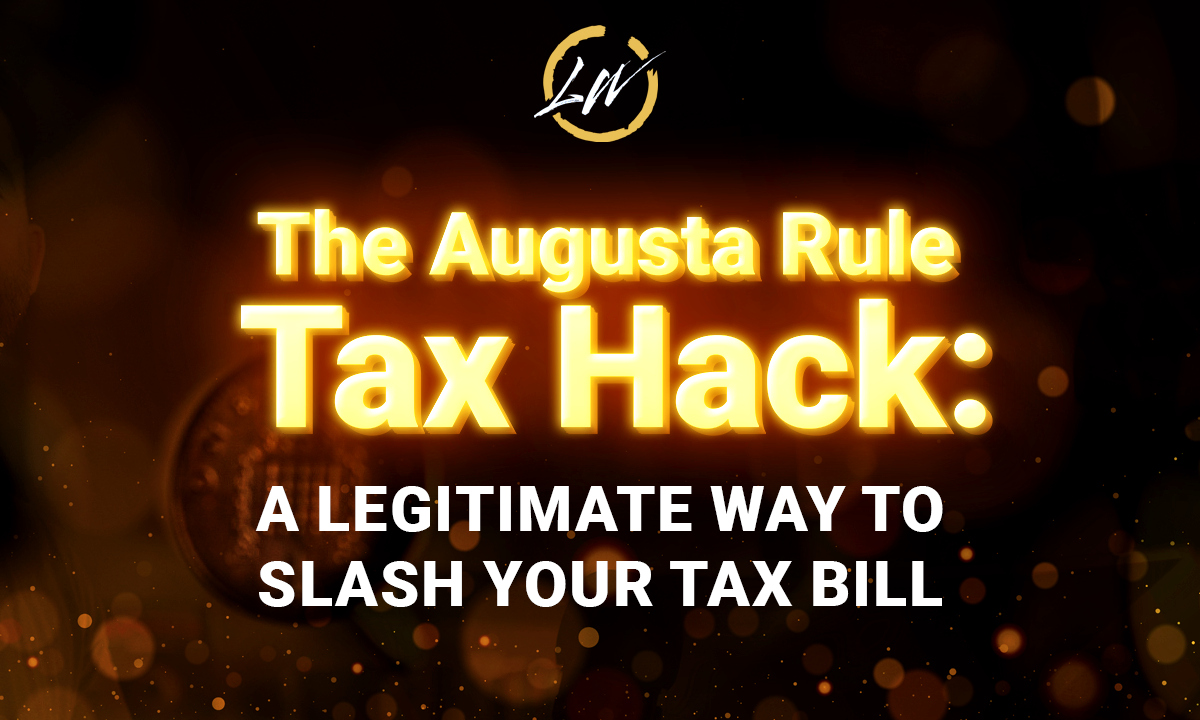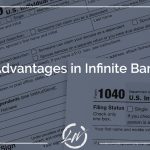It’s no secret that many of us are constantly on the lookout for legal and legitimate ways to reduce our tax bills. That’s where the Augusta Rule tax hack comes into play.
In this blog post, we’re going to dive deep into this fascinating tax loophole that has been gaining popularity among savvy taxpayers. By the end of this article, you’ll have a clear understanding of what the Augusta Rule is, how it works, and whether it’s a strategy that could benefit you.
What Is the Augusta Rule Tax Hack?
The Augusta Rule, also known as the Augusta Exemption, is a perfectly legal loophole in the IRS tax code. It allows homeowners to rent out their primary residences for up to 14 days in a year without having to pay taxes on the rental income. Yes, you read that right – tax-free income! This rule was initially associated with the Augusta golf tournament, and it’s the reason for its unique name, but you’ll find out more about that in the next section.
For now, picture this, you own a beautiful home, and you live in an area where a major event, like a golf tournament or a music festival, takes place once a year. During that event, you decide to rent out your home for a week or two at a premium price.
The beauty of the Augusta Rule tax hack is that the income you earn from renting out your home during those 14 days is entirely tax-free. It’s like the IRS is giving you a free pass to make some extra money without the taxman taking a cut.
Why Is It Called the Augusta Rule?
Now, let’s circle back a few years. To understand why it’s called the Augusta Rule, we need to take a trip back to the Augusta golf tournament. Homeowners in the vicinity of the Augusta National Golf Club saw an incredible opportunity to cash in on the influx of visitors attending the prestigious golf event.
They began renting out their homes for the week of the tournament, often charging exorbitant prices for accommodations. The best part? Thanks to the Augusta Rule, they didn’t have to pay taxes on this rental income. It was a win-win for homeowners and event attendees alike.
How Business Owners Can Benefit from the Augusta Rule Tax Hack
Now that you have a grasp of what the Augusta Rule is all about, let’s explore how business owners can leverage this tax hack to their advantage. If you own a business, whether it’s an active operating business or an investment venture, the Augusta Rule can be a game-changer for you. Here’s the strategy:
- Rent Your Personal Residence to Your Corporation: The crux of the Augusta Rule tax hack for business owners is that your company can legally rent your personal residence from you for up to 14 days a year.
- Deduct Rental Payments as Business Expenses: The magic happens when your corporation rents your home. The rent payments become legitimate business expenses that can be deducted from your company’s income, reducing its taxable income. Essentially, your business gets to deduct the cost of renting your home.
This strategy can be particularly advantageous if you have a spacious and comfortable home suitable for hosting business-related activities. You can hold board meetings, staff meetings, retreats, or even team-building events at your home. All of this can be done while legally reducing your company’s taxable income.
The Pitfalls of the Augusta Rule Tax Hack
While the Augusta Rule tax hack sounds like a dream come true for tax-savvy individuals, there are some important considerations and potential pitfalls to be aware of:
The Reasonable Rental Rate Dilemma
One of the key aspects of the Augusta Rule is the requirement that the rental rates be reasonable. The IRS doesn’t provide a concrete definition of “reasonable,” which leaves room for interpretation. This ambiguity is where things can get a bit tricky. You’ll need to determine what a reasonable rental rate for your property is, and this can vary based on factors like location, amenities, and market demand.
It’s essential to strike a balance between maximizing your tax savings and staying within the bounds of reasonability. Charging exorbitant rental rates might raise eyebrows with the IRS, potentially leading to audits or tax disputes. Consult with a qualified accountant to ensure you’re setting a fair and justifiable rental rate for your property.
Navigating IRS Scrutiny
Using the Augusta Rule tax hack may increase the likelihood of scrutiny from the IRS. While the strategy is legal and legitimate, any tax-saving method that appears aggressive or unconventional can catch the IRS’s attention. This doesn’t mean you should shy away from utilizing the Augusta Rule, but it does underscore the importance of proper documentation and compliance.
Nate’s Personal Experience with the Augusta Rule Tax Hack
To shed light on the practical aspects of the Augusta Rule tax hack, let’s take a look at Nate Scott’s personal experience. Nate, our very own Living Wealth IBC coach and host of the Dollars and Nonsense podcast, shared his journey with the Augusta Rule in a recent episode. He recounted his initial excitement about the tax-saving potential of the rule. Nate and his wife decided to rent their home for board meetings, paying themselves handsomely for the use of their residence.
However, Nate’s experience also highlighted the moral dilemma that can arise. He began to question whether the rental rates they were charging were reasonable. This internal ethical struggle led him to pause and reflect on whether the tax savings were worth it. Ultimately, he decided to stop using the Augusta Rule for a period, prioritizing peace of mind and ethical considerations.
Consulting with an Accountant Is Essential
If you’re intrigued by the Augusta Rule tax hack and believe it could benefit you, consulting with a qualified accountant is a crucial step. An experienced accountant can:
- Confirm the legitimacy of using the Augusta Rule for your specific situation.
- Help you determine a reasonable rental rate based on your property and location.
- Ensure full compliance with tax regulations and documentation requirements.
Is the Augusta Rule Tax Hack Right for You?
The Augusta Rule tax hack is a legitimate and powerful strategy for reducing your tax bill. Whether you’re a homeowner looking to make extra income during special events or a business owner aiming to optimize your tax deductions, the Augusta Rule offers exciting possibilities.
However, it’s not without its challenges. Determining reasonable rental rates and navigating potential IRS scrutiny require careful consideration and expert guidance. Nate Scott’s personal experience serves as a reminder that ethical and reasonable practices should be at the forefront of any tax-saving strategy.
If you’ve never explored the Augusta Rule before, it’s time to start a conversation with your accountant. Together, you can evaluate whether this tax hack aligns with your financial goals and ensure that you’re on the right side of the IRS.
If you like this content and want to learn more finance hacks, we definitely recommend checking out our podcast Dollars and Nonsense. And if you want more info about the Augusta Rule, watch our full podcast episode about it right here.






